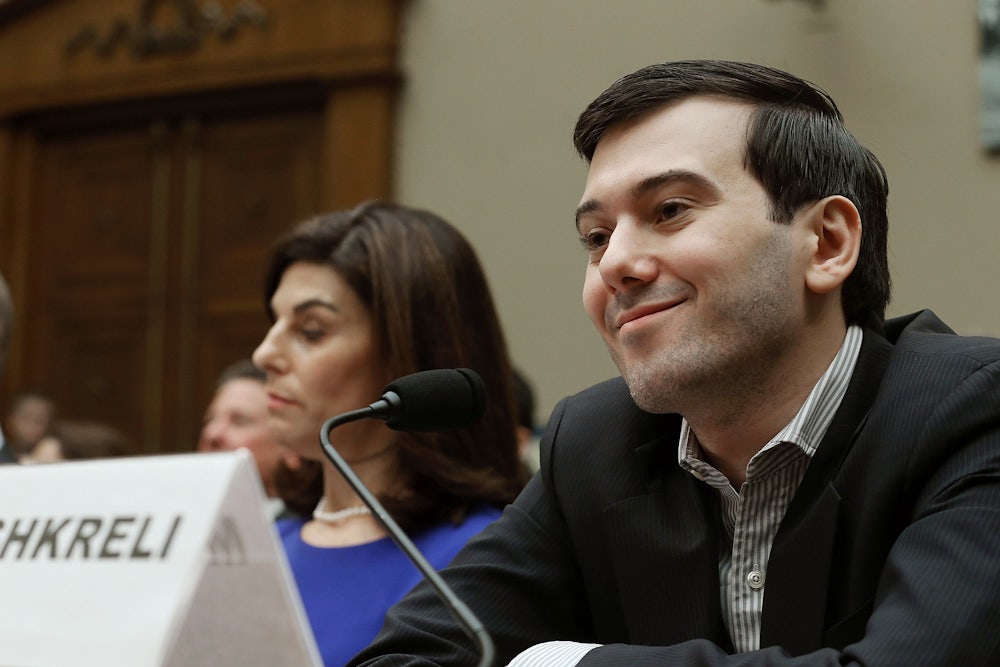Nirmal Mulye, the chief executive of Nostrum Laboratories, defended increasing the cost of nitrofurantoin, an antibiotic used to treat bladder infections, from $475 a bottle to $2,392. “I think it is a moral requirement to make money when you can . . . to sell the product for the highest price,” Mulye said, according to The Financial Times. He went on to defend former Turing Pharmaceuticals and current inmate CEO Martin Shkreli, who was widely scorned for raising the cost of a drug for AIDS and cancer patients from $13.75 a pill to $750:
“I agree with Martin Shkreli that when he raised the price of his drug he was within his rights because he had to reward his shareholders,” said Mr Mulye. Mr Mulye pointed out that Shkreli was able to increase the price of Daraprim so dramatically because his company was the only one making it. “If he’s the only one selling it then he can make as much money as he can,” said Mr Mulye. “This is a capitalist economy and if you can’t make money you can’t stay in business.”
Mulye and Shkreli aren’t the only pharmaceutical executives to jack drug prices far beyond what many vulnerable patients can afford to pay. Mulye claimed that he raised the price of nitrofurantoin in response to a similar price hike for Furadantin,
the drug’s branded version, which Casper Pharmaceuticals raised to $2,800 a bottle.
Meanwhile, insulin prices continue to rise. The New York Times reported on June 22 that the cost increased from an average of $40 per vial to $130 per vial. A Yale University study found that 25 percent of diabetes patients are thus deliberately underusing the life-saving drug in order to save money. Patients making under $100,000 a year were most likely to cut back on their insulin use. As the Times also reported, one Type 1 diabetes patient, Alec Reshawn Smith, died of diabetic complications after being told that his supplies would now cost $1,300. And as I reported in 2017, another Type 1 diabetes patient, Shane Boyle, died of complications after he failed to crowdfund enough money to buy insulin.
